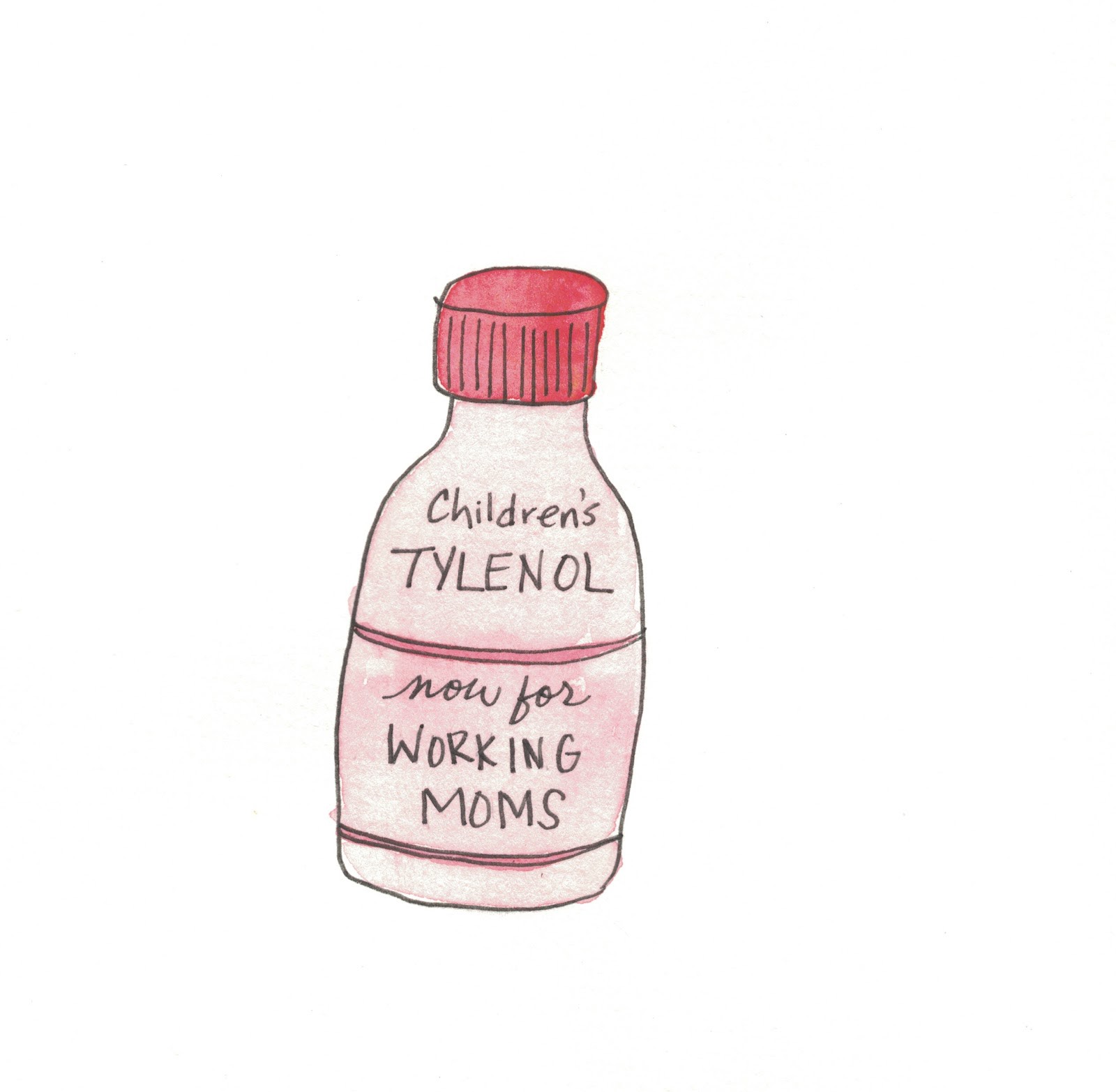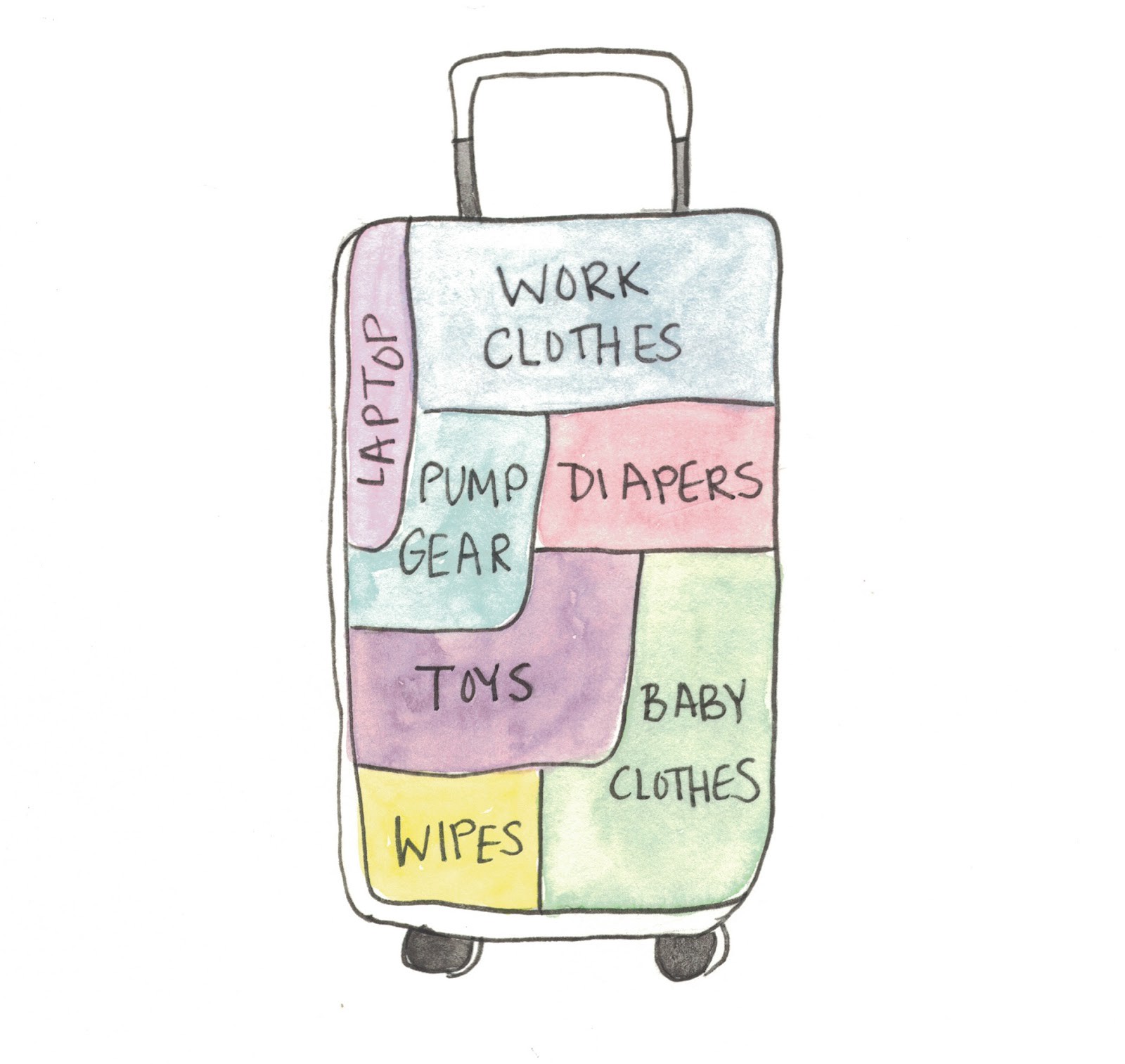Themes from 13 interviews to help empathize with the moms you work with.
“I feel like the biggest disservice women have done is not articulate how hard it is to be a mom. I didn’t get it before having kids. I was like, ‘how hard can it really be?’” – Claire, Director of Branding
Claire was one of the thirteen working moms we interviewed. Despite having a supportive partner, she felt as if she wasn’t doing as much as she could at home. And despite making weekly business trips away from her family, she felt as if she wasn’t doing enough at work. She brings in the highest sales revenue in her office, but feels too busy and even unworthy to ask for a promotion. Claire cautiously admitted that before she had children she didn’t quite sympathize with her mom coworkers. But now, here she is, a mother herself, who has undergone a radical transformation, with shifting values, newfound priorities, and most importantly, a family who depends on her. She’s exhausted, overwhelmed and at her limits, but feels compelled to act as if nothing has changed when at work. Her tension was echoed by all of the moms we interviewed: Working moms are doing invisible work at home, and making invisible sacrifices for work that inadvertently prevent them from advocating for career growth.
When we re-entered the workforce after having children, we found living parallel lives of mom and employee emotionally turbulent, guilt-ridden and full of constant doubt in ourselves and our careers. We both took an extreme measure and quit jobs we were passionate about at a company we loved. But, the researchers in us couldn’t shake the question: Why is it so hard to be a working mom? And so we interviewed moms with children under 5, who work in a range of professions, spanning technology, education and government, and companies, including Google, Uber, Apple and Airbnb¹. We conducted interviews during our participants’ pump breaks, lunch breaks, commutes and evenings, and during our own children’s nap times; we attempted to synthesize during playdates and car trips, which gave new meaning to the term multitasking.
This isn’t another self-help piece for moms on “how to survive the workplace” or a “top 5 hacks for getting dinner on the table faster.”It’s an attempt to listen, empathize and highlight the invisible work, sacrifices and challenges moms face, and that ultimately add to the gender gaps in female leadership roles and salary. While we know our most obvious reader will be a mom, we hope our findings help a caring manager, human resource employee, and company leader, better understand and advocate for making the invisible more visible.

¹All the women in our study are white-collar workers in committed relationships living across the US. Single parents and parents at lower income levels have it even harder especially with the increasing costs of childcare, as Elizabeth Warren has addressed. We recognize we are in a privileged position, and we hope to advocate for parents across all socioeconomic backgrounds through future studies and work.
Even with the best of partners, moms take on a disproportionate amount of invisible work at home
It’s not surprising that becoming a parent is a life-altering event that comes with a hefty to-do list and shifting priorities. But even in households with extremely involved, well-intentioned fathers, moms are still doing more of the work, while simultaneously assuming that their partners are doing as much as they can. According to a study by LeanIn.Org and McKinsey & Company, “women with a partner and children are 5.5 times more likely than their male counterparts to do all or most of the household work.” Moms we interviewed disproportionately performed tasks such as childcare drop-off and pick-up, scheduling and attending medical appointments, researching enrichment activities, and purchasing supplies and clothes. To their partners much of this work is invisible, and to their employers this work is irrelevant.
“Even with a supportive partner, the biggest gotcha surprise was that as a mom you are the manager of the household. Clothes, baby fed, nanny paid, dog walked, fridge stocked. Every day.” – Allison, Small Business Owner
“He’s the best dad but there’s so many things he has no idea I do. He just thinks there’s magically always diapers and perfectly fitted, seasonal clothes.” – Lexi, VP of Operations
The responsibilities that fall on moms are time consuming, emotionally expensive, and withdraw from a seemingly infinite, yet always depleting energy bank. Even the simple event of getting out the door in the morning can become task-heavy and emotional, as one participant described:
“Our morning routine: getting myself ready for work, getting them ready for school, making sure the lunches are packed, their teeth are brushed, they learn how to bring their own plate to the sink, and Robbie gets to practice putting on his own shoes, and we remember to go to the potty all in an hour and a half without snapping at them because I don’t want to be late and they don’t understand the concept of lateness. Those types of little parenting issues take a big toll on me. It’s trying to do all that while working.” –Michelle, Social Worker

Moms make invisible sacrifices to do their jobs
Family needs and work needs are often directly at odds. Fearing real or perceived setbacks at work, moms often discreetly put work above their own wishes for their families. Michelle, a social worker, desperately wants to make it home for family dinners, but is unable to because her responsibilities restrict her from leaving until after the early evening hours. She wants to bring her administrative work home and complete it once her children are asleep, but fears asking to do so will make her look less serious and committed and will ultimately harm her career growth.
Moms, just like Michelle, often make sacrifices to accommodate work in daily situations like reluctantly skipping a pumping session to attend a meeting; in unpredictable scenarios like not being able to care for a sick child; and when work demands come up like traveling. Managers may not even realize the personal sacrifices moms are making because these decisions happen invisibly, gracefully and quietly.
“My milk production went down pretty drastically, and that was really stressful for me… There are moments in the workday where I actually choose between what’s good for my body and my child and what’s good for my job.” – Lisa, Deputy Chief of Staff

“One of the hardest things about working is not having the flexibility to immediately react to do what’s best for my family…Here’s an example. Right now she’s sick, she looks terrible, she has a slight fever. The best thing for her would be to stay home with me today but that’s not feasible. This morning I did what all of the parents in my office talk about doing. I gave her Tylenol to hopefully keep the fever down long enough for her to go to school today. If it’s over 101 she can’t go to school for 24 hours. I can’t miss that much time off work this week.” – Cary, Customer Experience Manager

“The trip was 4 days so I didn’t have enough milk for the baby. I flew my mom in. It was so hard.” – Rae, Senior Analyst

Invisible work and sacrifices make it harder to advocate for career growth
Most of the moms we talked with were not currently vying for a promotion. In objective terms, this was baffling. These were the same moms we heard share stories of incredible sacrifice, devotion and effort to their jobs. They gave up breastfeeding before they were ready because of work, they missed dinners with their children, and came to work everyday after giving emotional goodbyes and highly logistical drop-offs. These were also the same moms who noted that the financial compensation from work was now more important than ever to support their families. But the act of explicitly “caring” to be promoted was seen as a burden.
Specifically, moms said they were uninterested in being promoted because they no longer had the patience for office politics, they lacked the time to advocate for themselves, they didn’t feel they deserved it because of their commitments outside of work, and the priorities they derived from work had changed. Once motivated by title and their place in the corporate hierarchy, they placed more importance on the work’s meaning.
“My objective isn’t to get promoted. At this point, it’s to do a good job in my role. I want to spend time with family and kids.” – Jennifer, Director of Strategy and Operations
“I feel like I’m not as worthy as other people who don’t need to leave at 5:30.” – Claire, Director of Branding

At face value, managers may interpret their directs’ lack of self-advocacy as opting out of greater career opportunities, or selecting into the so-called “mommy track.” But considering the behind-the-scenes effort and priority moms place on their jobs, these moms’ intent may be grossly misunderstood.
“Even though I need to put limits I still want to achieve and will work hard…I’m still ambitious even though I’m not in the office 12 hours a day.” – Stephanie, Data Scientist
What does this mean for companies?
When women are overloaded with invisible work at home and making invisible sacrifices for work, advocating for career growth is deprioritized. As a result, they may be passed up for opportunities that would bring more fulfillment, challenge and eventually positions in leadership. At a glance, this could be interpreted as an issue that affects individuals: Claire should feel worthy of fighting for a promotion since she brings in the highest sales revenue on her team. But when taking a step back, Claire is part of a systemic problem. Women are disproportionately represented in leadership positions. Four in five C-suite leaders is a man, and women are underrepresented in line roles at every level of the corporate pipeline (source). And, women earn 4% less with each child they have (source).
By keeping moms employed and growing into leadership positions companies benefit from attracting a more diverse workforce, which leads to greater innovation and creativity, lower turnover, easier recruitment and capturing more of the market (source). And, working moms have many superpowers that benefit their employers; our participants said that after becoming a mom they were more efficient, outspoken, better able to prioritize; they have more perspective and they don’t sweat the small stuff.
There is no magic bullet that will adequately address all moms, in all companies, but here are some guiding principles to make the invisible more visible:
- Acknowledge and understand how hard it is for moms to show up at work every day. Learning about a mom’s family and her daily routines can help get a better picture of the “whole self”, not just the work self.
- Create an environment where these topics are encouraged and discussed without penalty or judgement: What’s particularly challenging? What tradeoffs are moms making to do their job? How can you help them find fulfillment in their jobs and advance their career at a pace that feels right to them?
- Make parenthood more visible so that moms can show up as their true self. Encourage all parents, especially in leadership positions, to talk about how their family impacts their work. Create or connect moms to venues for parents to talk about their children; inquire about their children, and life outside of work as appropriate.
Contact Us
For our next study, we want to focus on actionable solutions, and partner with a company who cares about supporting moms. If you’d like to work with us, or share your thoughts, you can reach us at anneandnatalie@gmail.com.
P.S. Thank you to all the moms who shared their stories with us. You are an inspiration to us all.
